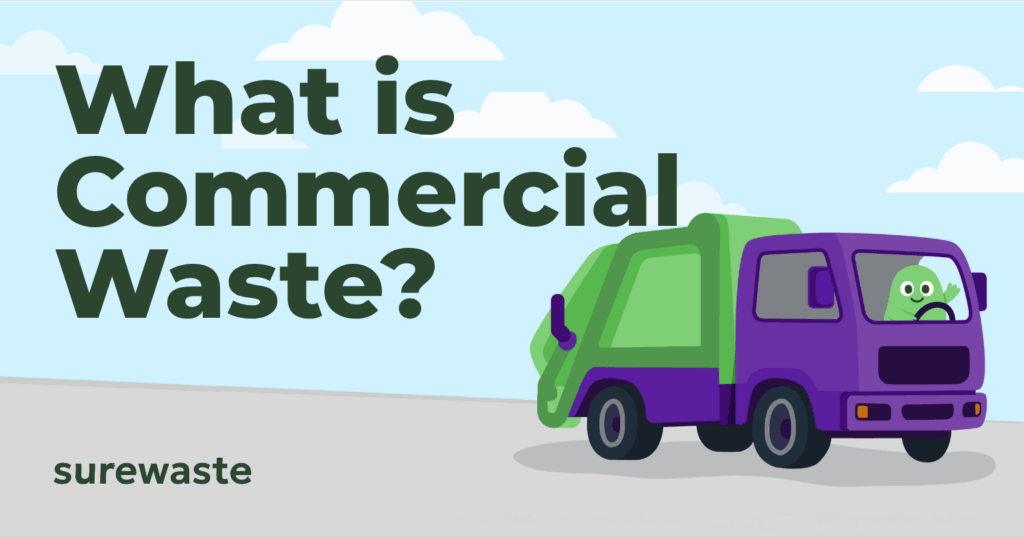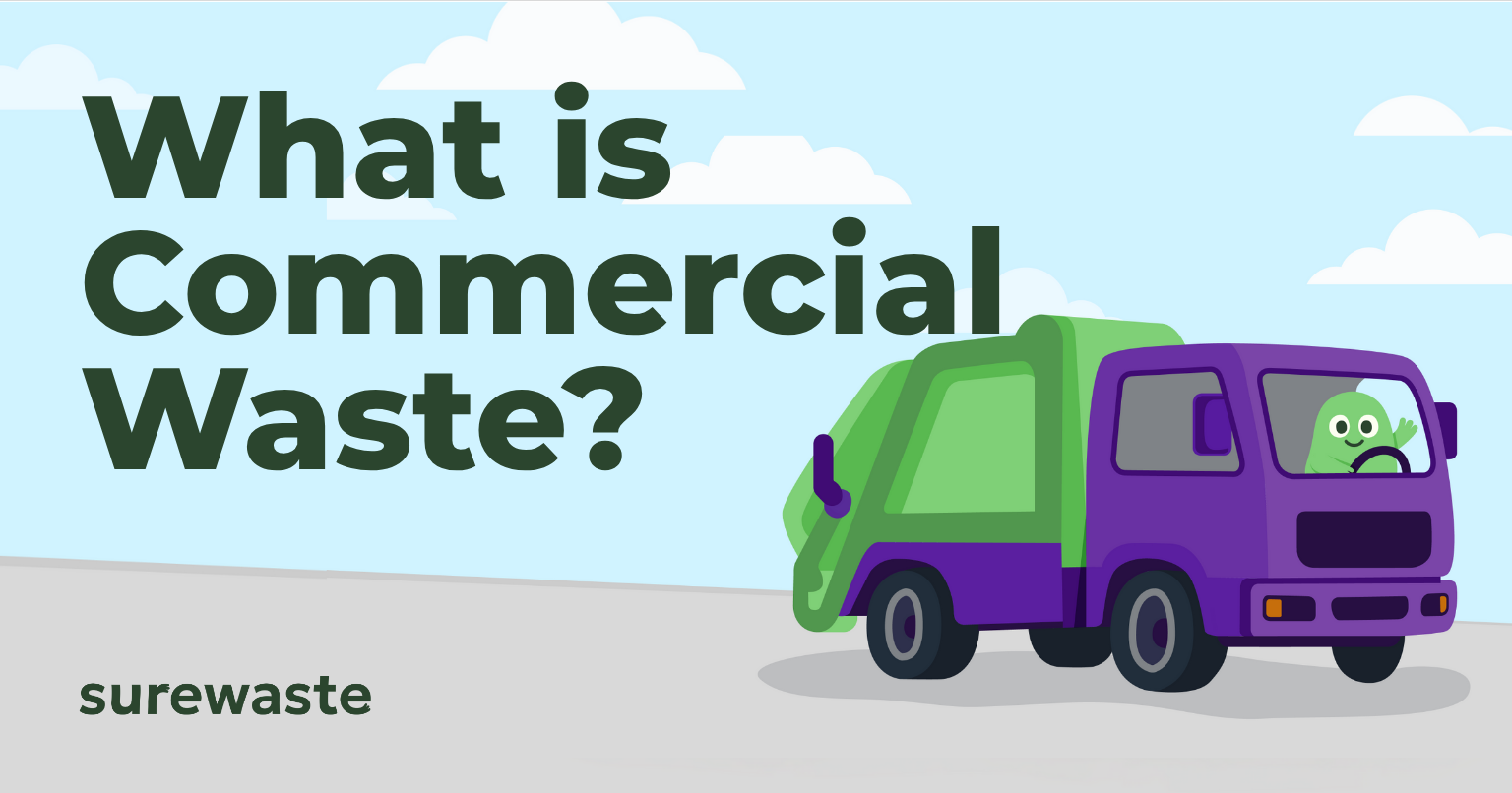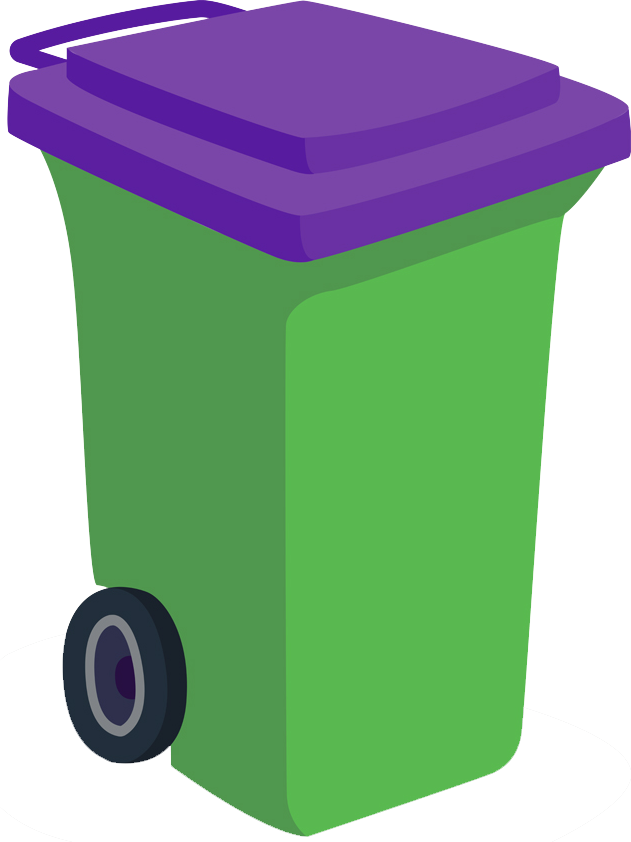What is Commercial Waste?

Commercial waste is any rubbish produced by a business – whether you run a café, shop, office, or even a mobile stall at the market. That includes home-based businesses too. Unlike household waste, it has its own set of rules, and you’re legally responsible for disposing of it through a licensed commercial service.

Types of Commercial Waste (and What Goes in Each Bin)
Different types of waste need different handling – and mixing them up can cause all sorts of problems.
In fact, under the new Simpler Recycling rules, businesses in England with 10 or more full-time equivalent employees must now separate recyclable waste, food waste, and general waste before collection. Here’s a quick breakdown of what goes where:
- General Waste: This is your everyday rubbish that can’t be recycled. Think contaminated packaging, used tissues, or broken items.
- Recyclable Waste: Includes materials that can be sorted and reprocessed. Cardboard, clean plastics, paper, cans, and glass all go in here – provided they’re not dirty or mixed with food.
- Food Waste: Covers prep scraps, plate leftovers, and out-of-date stock. Particularly common in restaurants, cafés, and food retailers.
- Hazardous Waste: Anything that could pose a risk to health or the environment. This includes cleaning chemicals, batteries, paint tins, and clinical waste. These require special collection and proper documentation.

Who’s Responsible for Commercial & Trade Waste?
If you run a business, the legal responsibility for your waste lies with you.
Under the UK’s Duty of Care rules, you must store, handle, and dispose of commercial waste safely – and only through a licensed waste carrier. Each collection needs a Waste Transfer Note (or a Season Ticket if you have regular pickups). Keep these for at least two years as proof you’re complying.
And remember: council bin collections are for households only – they don’t cover business waste.
What Commercial Waste Looks Like in Different Industries
The type of waste your business produces often depends on your industry. Here’s a snapshot:
- Offices: Paper, printer cartridges, food wrappers, old electronics
- Shops: Cardboard packaging, damaged stock, plastic hangers
- Restaurants: Food waste, cooking oil, glass bottles, disposable containers
- Construction: Rubble, plasterboard, paint tins, metal offcuts
Each sector comes with its own challenges, so having a tailored waste collection service can make a real difference – both for compliance and cost.
Why Proper Disposal Matters
Getting your waste sorted properly isn’t just a box-ticking exercise. It helps you avoid fines, keeps your premises clean and compliant, and shows you care about doing things right.
It also supports recycling targets and protects the environment – something more and more customers value. A tidy, well-managed waste setup can boost your reputation with both clients and regulators.
What to Expect from a Commercial Waste Collection Service
A good commercial waste service should fit around your business – not the other way round.
Expect flexible collections based on how much waste you produce and what type it is. You’ll get the right bins and bags, along with clear, legally compliant documentation. Many services also offer advice to help you stay on the right side of regulations – and save money by sorting waste more efficiently.

Staying Compliant Without the Stress
Getting to grips with commercial waste isn’t as complicated as it seems – especially with the right support.
If you’re unsure about your bin setup or need help understanding your options, Surewaste can point you in the right direction. Use our savings calculator to compare typical costs, or request a quote to get a clearer picture of your current setup.

